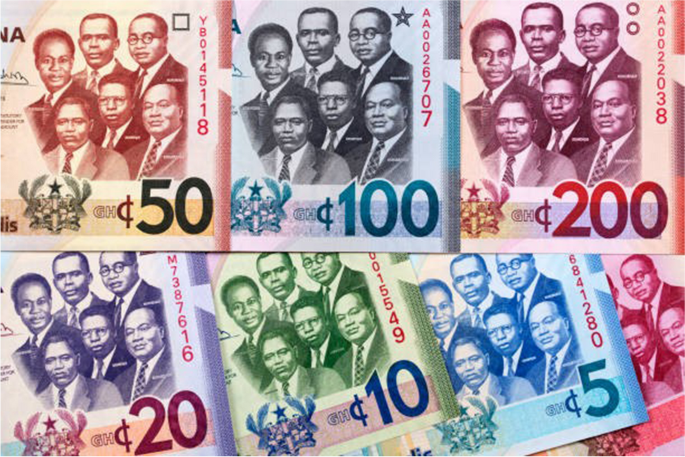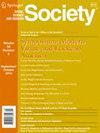The Unnamed: Exploring the Erasure of Women from the History of Ghana
IF 1.4
4区 社会学
Q2 SOCIAL SCIENCES, INTERDISCIPLINARY
引用次数: 0
Abstract
Abstract In this paper, I reflect on the contribution of Ghanaian nationalist women towards the independence struggle and post-independence nation building (1950–1970), and their erasure from the mainstream history of Ghana. I rely on the literature on women’s political participation in Ghana and the scholarship on memorializing people for meritorious service in Ghana to explore women as victims of historical erasure. I also deploy other sources like the national currencies, commemorative dates, and naming of monuments to highlight the relative weight we attach to women’s and men’s political contribution to nation building. I argue that despite women’s frontal roles, including movement making, organizing prowess, founding parties, leading civil disruptions, and even funding the independence of Ghana, state-led commemorative acts and memorializing practices belie women’s effort and historize men as founders of Ghana. Such de-historizing is often endorsed by male-led political regimes. To ameliorate this masculinization of the memorializing concern, the paper proffers guidelines to enable a fairer memorializing practice. This includes acknowledging the gender biases in our memorializing practices, researching the unnamed leading women, making their information mainstream, renaming our already named monuments to include leading women, and embossing their portraits on our national currencies alongside the men.

无名:探索加纳历史上对女性的抹去
在本文中,我反思了加纳民族主义妇女对独立斗争和独立后国家建设(1950-1970)的贡献,以及她们从加纳主流历史中被抹去。我依靠关于加纳妇女政治参与的文献和关于纪念加纳有功人士的奖学金来探索妇女作为历史抹去的受害者。我还利用其他来源,如国家货币、纪念日期和纪念碑的命名,来强调我们对女性和男性对国家建设的政治贡献的相对重视。我认为,尽管妇女发挥了正面作用,包括发起运动、组织能力、创建政党、领导内乱,甚至为加纳的独立提供资金,但国家主导的纪念行为和纪念活动掩盖了妇女的努力,并将男性视为加纳的缔造者。这种去历史化往往得到男性领导的政治体制的支持。为了改善这种男性化的纪念关注,本文提供了指导方针,使更公平的纪念实践。这包括承认我们纪念活动中的性别偏见,研究未具名的女性领袖,使她们的信息成为主流,重新命名我们已经命名的纪念碑,将女性领袖包括在内,并将她们的肖像与男性一起印在我们的国家货币上。
本文章由计算机程序翻译,如有差异,请以英文原文为准。
求助全文
约1分钟内获得全文
求助全文
来源期刊

Society
Multiple-
CiteScore
1.30
自引率
11.10%
发文量
132
审稿时长
12 weeks
期刊介绍:
Founded in 1962, Society enjoys a wide reputation as a journal that publishes the latest scholarship on the central questions of contemporary society. It produces six issues a year offering new ideas and quality research in the social sciences and humanities in a clear, accessible style.
Society sees itself as occupying the vital center in intellectual and political debate. Put negatively, this means the journal is opposed to all forms of dogmatism, absolutism, ideological uniformity, and facile relativism. More positively, it seeks to champion genuine diversity of opinion and a recognition of the complexity of the world''s issues.
Society includes full-length research articles, commentaries, discussion pieces, and book reviews which critically examine work conducted in the social sciences as well as the humanities. The journal is of interest to scholars and researchers who work in these broadly-based fields of enquiry and those who conduct research in neighboring intellectual domains. Society is also of interest to non-specialists who are keen to understand the latest developments in such subjects as sociology, history, political science, social anthropology, philosophy, economics, and psychology.
The journal’s interdisciplinary approach is reflected in the variety of esteemed thinkers who have contributed to Society since its inception. Contributors have included Simone de Beauvoir, Robert K Merton, James Q. Wilson, Margaret Mead, Abraham Maslow, Richard Hoggart, William Julius Wilson, Arlie Hochschild, Alvin Gouldner, Orlando Patterson, Katherine S. Newman, Patrick Moynihan, Claude Levi-Strauss, Hans Morgenthau, David Riesman, Amitai Etzioni and many other eminent thought leaders.
The success of the journal rests on attracting authors who combine originality of thought and lucidity of expression. In that spirit, Society is keen to publish both established and new authors who have something significant to say about the important issues of our time.
 求助内容:
求助内容: 应助结果提醒方式:
应助结果提醒方式:


